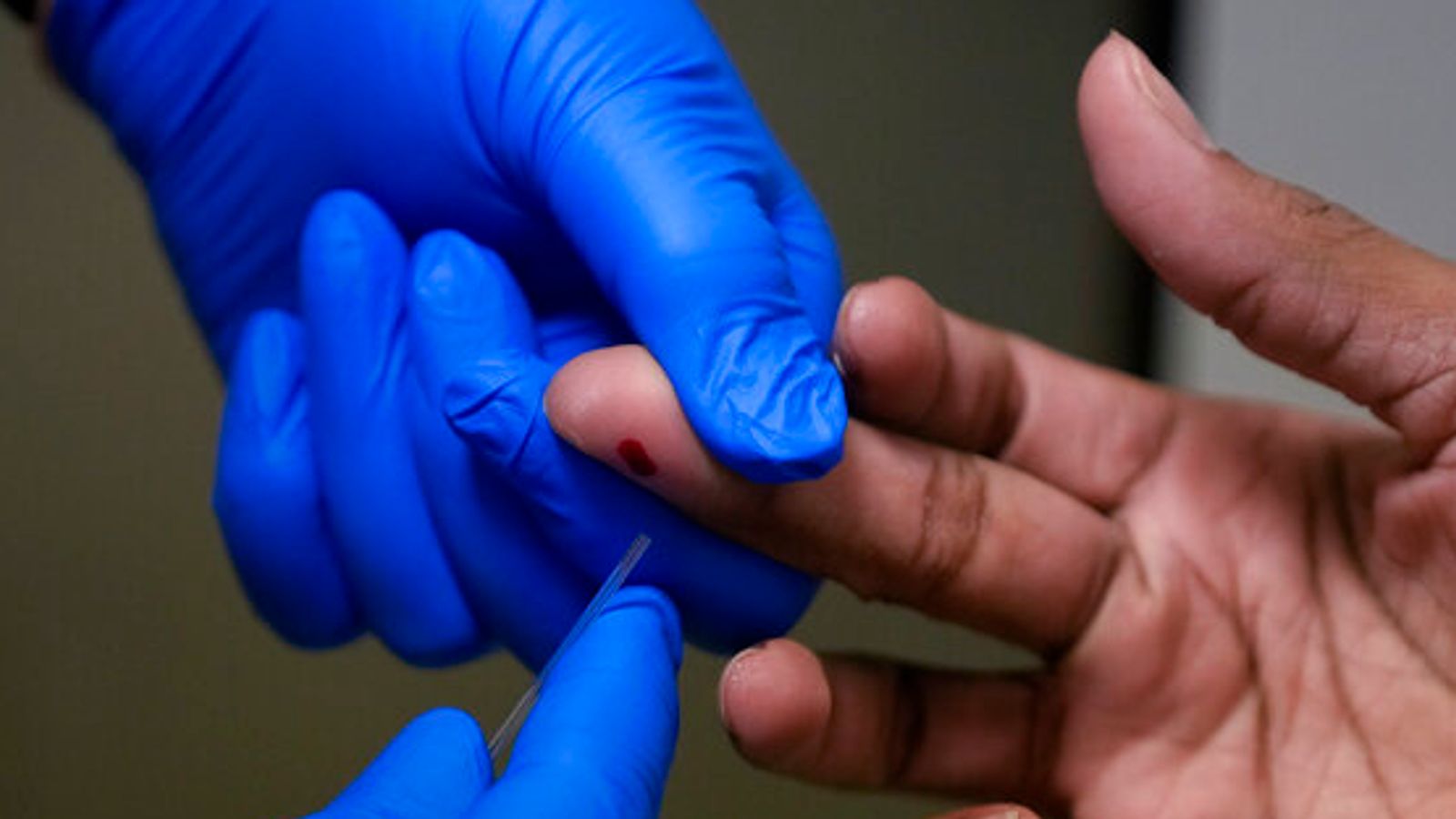A quick, cheap test test has been developed to diagnose “the most common STI you’ve probably never heard of”.
Each year there are about 156 million worldwide cases of trichomoniasis – more than chlamydia (127 million), gonorrhoea (87 million) or syphilis (six million).
Trichomoniasis – which is caused by a parasite called trichomonas vaginalis – does not cause symptoms in about 70% of infected people.
But even in asymptomatic people it can increase the likelihood of getting HIV, is linked to infertility and pregnancy complications in women, and may raise men’s risk of prostate cancer.
Now researchers at Washington State University (WSU) in the US have developed a test that takes less than five minutes and costs under $20 (£16).
The new test, detailed in the journal Pathogens, requires only a drop of blood to detect an antibody specific to trichomoniasis.
Like COVID-19 and pregnancy tests, the results are displayed in a window with a dot appearing if the antibody is present, indicating infection.
Once trichomoniasis has been diagnosed, it is easily curable with a drug called metronidazole.
Read more health news:
Women with mental illnesses ‘have twice the risk of developing cervical cancer’
Unexplained infertility ‘linked to genes that cause cancer and heart disease’
Study lead author John Alderete, professor at WSU, said trichomoniasis “is the most common STI you’ve probably never heard of”.
“This STI may be the most neglected among the other curable STIs. One of the major problems is that most people are asymptomatic. In other words, you may have it, but you don’t know you have it until you have a really bad problem.”
It is usually only diagnosed when people present with symptoms, which can include genital itchiness, abnormal discharge and a burning sensation during urination.
The current tests focus on women and involve a vaginal swab, requiring trained staff, specialised equipment and time to get results back.
By contrast, the newly developed test does not require specialised training or equipment and treatment can be given immediately after diagnosis.






